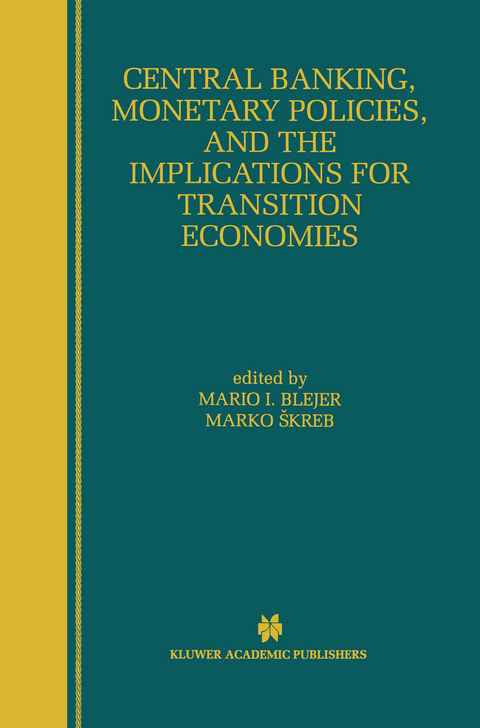
Central Banking, Monetary Policies, and the Implications for Transition Economies
Springer-Verlag New York Inc.
978-1-4613-7365-0 (ISBN)
I Introduction.- 1 Central Banking and Monetary Policies: Major Issues and Implications for Transition Economies.- II Central-Bank Independence.- 2 Central-Bank Independence and Monetary Policy.- 3 Central Banking in a Democratic Society: Implications for Transition Countries.- 4 Central-Bank Independence and Political Business Cycles: A Critical Reexamination.- 5 Political Culture and the Political Economy of Central-Bank Independence.- III Defining Central-Bank Functions.- 6 Central Banking and Economic Development.- IV Central Banks and Financial Soundness.- 7 Central Banks, Asset Bubbles, and Financial Stability.- 8 The Conduct of Monetary Policy and Banking Soundness: A Slovenian Episode.- V Disinflation and the Role of Nominal Targets.- 9 Monetary Policy Strategies for Disinflation: Lessons from Recent Experiences in Transition Economies and Israel.- VI Currency Crises and Capital Controls.- 10 Speculative Attacks and Capital Mobility.- 11 Nascent Capital Flows, Learning, and Chilean-Type Controls.- 12 The Role of the Central Bank in Capitals Account Liberalization: The Case of Croatia.- VII Currency Boards.- 13 Some Reflections or Currency Boards.- 14 The Central Bank of Bosnia and Herzegovina: Its History and Its Issues.- VIII EMU and Transition Economies.- 15 The International Impact of the Euro and Its Implications for Transition Countries.- 16 Monetary and Exchange-Rate Policy of Transition Economies of Central and Eastern Europe After the Launch of EMU.
| Zusatzinfo | XI, 465 p. |
|---|---|
| Verlagsort | New York, NY |
| Sprache | englisch |
| Maße | 155 x 235 mm |
| Themenwelt | Wirtschaft ► Betriebswirtschaft / Management ► Finanzierung |
| Wirtschaft ► Betriebswirtschaft / Management ► Rechnungswesen / Bilanzen | |
| Wirtschaft ► Volkswirtschaftslehre ► Finanzwissenschaft | |
| Wirtschaft ► Volkswirtschaftslehre ► Makroökonomie | |
| ISBN-10 | 1-4613-7365-4 / 1461373654 |
| ISBN-13 | 978-1-4613-7365-0 / 9781461373650 |
| Zustand | Neuware |
| Informationen gemäß Produktsicherheitsverordnung (GPSR) | |
| Haben Sie eine Frage zum Produkt? |
aus dem Bereich


